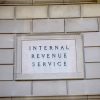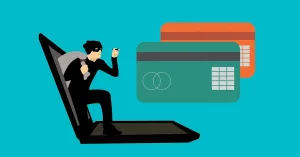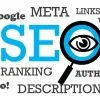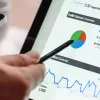If you are like the team at MoneyThumb, everywhere you look online you keep seeing the term 'blockchain.' So today, as one more way to keep our Rules of Thumb blog readers informed, we are going to dig into blockchain and discuss exactly what it means and how it affects the accounting profession.
This definition of blockchain comes from an article at Accounting Today. "Defined as an open, distributed ledger, blockchain technology records and verifies transactions without any trusted central authority. The technology itself exists as a file that maintains a continuously growing list of ordered records called blocks. Each block contains a timestamp and a link to a previous block using a “fingerprint.” Blockchains are resistant to modification of data and cannot be altered retroactively."
The article further went on to say, "Instead of companies keeping and reconciling records of the same transaction in their separate, privately managed databases, or ledgers, both sides of the transaction are recorded simultaneously in a shared ledger. Because of this capability, as well as its ability to record transactions in real-time, blockchain is poised to up-end traditional methods of invoicing, documentation, contracts, and payment processing for businesses and industries both large and small."
Here are some potential uses for blockchain in accounting and audit:
- Traceable audit trails;
- Automated audit processes;
- Authentication of transactions;
- Tracking ownership of assets;
- Development of “smart contracts;” and,
- Registry and inventory system for any asset, ranging from raw materials to intellectual property

As you can see from the graph above, blockchain is definitely on the rise. At first, it was used almost exclusively by digital and cryptocurrencies like Bitcoin, but more and more blockchain is becoming a preferred way to handle financial transactions online. “In the future, virtually every function in the world of financial services will be displaced, disintermediated and decentralized,” said Ron Quaranta, chairman of the Wall Street Blockchain Alliance during an American Institute of CPAs / CPA.com Executive Roundtable. “The internet gave us a powerful way to share and access information. Blockchain now gives us a powerful way to share and access value.”
While you cannot change the fact that technology is disrupting the accounting profession, you as an accountant can choose to embrace it and find new, value-added ways to serve clients. The most successful firms are transforming by moving away from traditional compliance activities and towards strategic advisory roles focused on helping their clients run a better business, improve their personal financial situation, or assess the risks involved with making a change.
So, while blockchain in accounting and audit may not yet be felt, it’s never too soon to survey the technology landscape and adjust the strategy of your firm accordingly. In such a fast-paced technological environment, being informed and open to change is really the only way to remain successful.
We hope this post has cleared up any questions or concerns our readers had about blockchain and how it affects the accounting industry. Another way to remain successful by keeping abreast of the latest technology for your accounting firm is to use our advanced PDF financial file converters. MoneyThumb prides itself on having the best financial file converter out there.





















Add comment